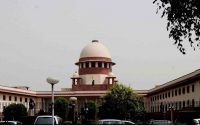$100 Website Offer
Get your personal website + domain for just $100.
Limited Time Offer!
Claim Your Website NowUID’s open-ended rules on biometrics worry Supreme Court
Source – indiatimes.com
NEW DELHI: The Centre on Wednesday told the Supreme Court that its Aadhaar scheme has been approved by experts and was not open to judicial review as it was a policy decision.
The government told a five-judge constitution bench headed by Chief Justice Dipak Misra, which is examining the validity of Aadhaar scheme and its enabling 2016 law that in a digital era that Aadhaar is the best way to prevent “money laundering and deliver subsidies and benefits”.
“The policy decisions of the government approved by experts are not subject to judicial review,” attorney general K K Venugopal told the bench which also comprised justices A K Sikri, A M Khanwilkar, D Y Chandrachud and Ashok Bhushan.
Venugopal referred to various reports, including one of the World Bank, and said that they acknowledged that India has taken a step to give an identity to the “poorest of poor”, which would finally help in achieving the task of financial inclusion of all.
The bench said “biological attributes” are open-ended and the authorities may expand and include some more biometric features in the Aadhaar scheme in future and asked whether it would not amount to “excessive delegation of powers” by Parliament.
Blood, urine, DNA may be added, but that will be be subject to examination by the courts, just like the court now is examining whether collection of fingerprints and iris scans are a violation of privacy, Venugopal said. The power of UIDAI to decide what is “biological attributes” and the method of collecting them has to meet the test of proportionality, the bench said.
In a report, NDTV said the bench observed that the Aadhar law is too open-ended. “Tomorrow, UIDAI may even say give your blood sample for doing DNA test,” the bench asked.
The top law officer said that that the development will slow down if there was judicial review of every state action and “courts should not interfere in matters of technical expertise”. The only duty of the court is to expound the language of the law and it may not decide whether a particular policy decision is fair or not, he said. The bench asked Venugopal whether UID violated the doctrine of proportionality. The Aadhaar scheme satisfies the test of proportionality, Venugopal said.



